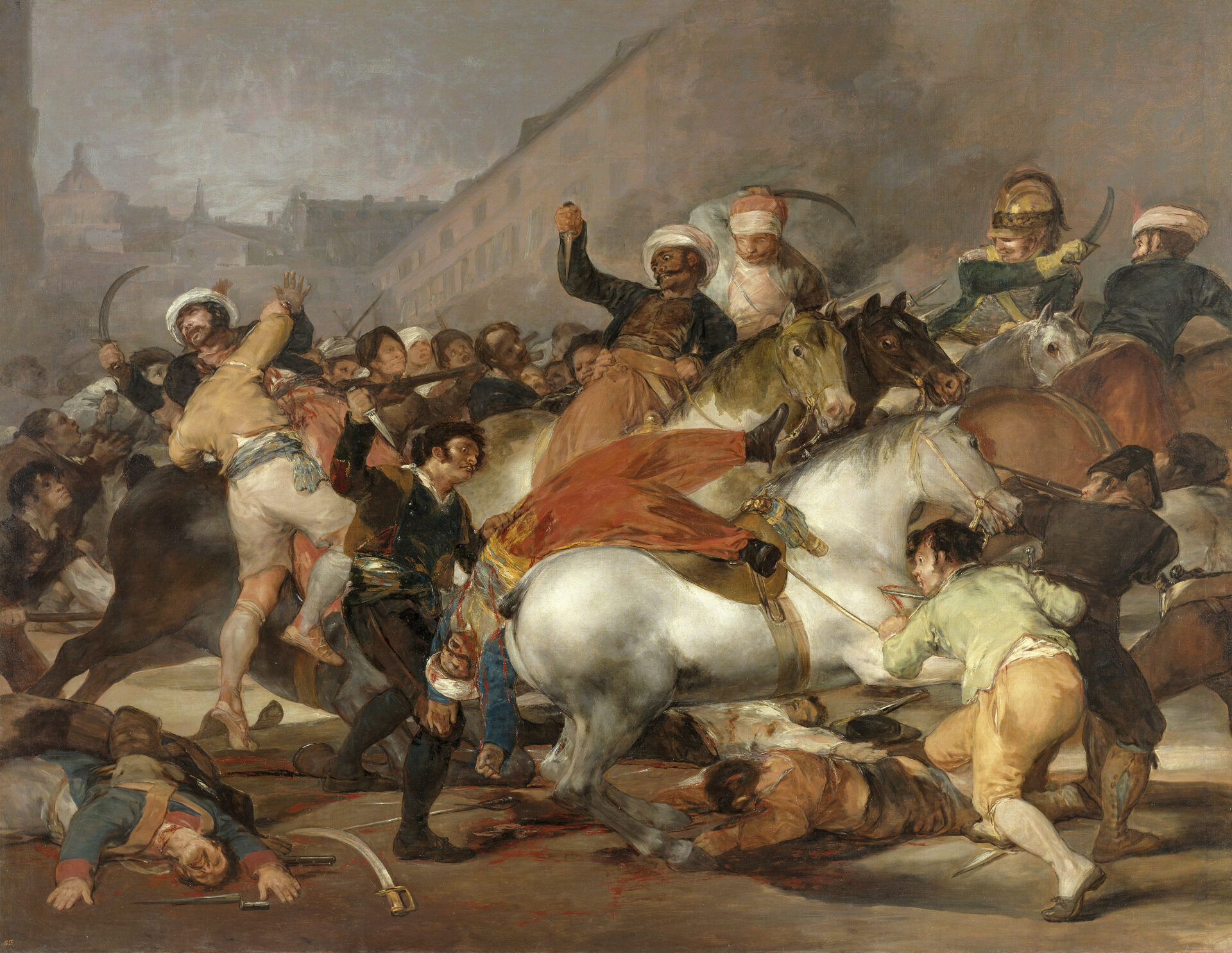In Europe the political and military consequences of the Continental System formed a decisive and disastrous chapter in Napoleonic history, a chapter that opened in 1807 when the emperor decided to impose the system on Britain’s traditional ally, Portugal.
The Portuguese expedition furnished Napoleon with an excuse for the military occupation of neighboring Spain. In 1808 he overthrew the Spanish royal family and made his brother Joseph his puppet king of Spain.
But every measure taken by Napoleon—the installation of a foreign monarch, the attempted enforcement of the Continental System, the suppression of the Inquisition, and the curtailment of noble and clerical privileges—violated Spanish customs and offended Spanish pride. The population of Madrid rose in revolt on May 2, 1808.
Although the uprising in Madrid was brutally repressed, the Peninsular War (named after the Iberian peninsula) rapidly grew. The Spaniards employed ambushes and poisoned wells and used other guerrilla devices.
The expedition that Britain sent to assist the Spaniards was ably commanded and generously supplied. Napoleon poured more than 300,000 troops into the campaign, but his opponents gained the upper hand in 1812, when he detached part of his forces for an invasion of Russia.

